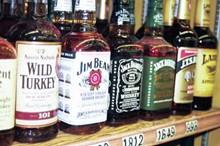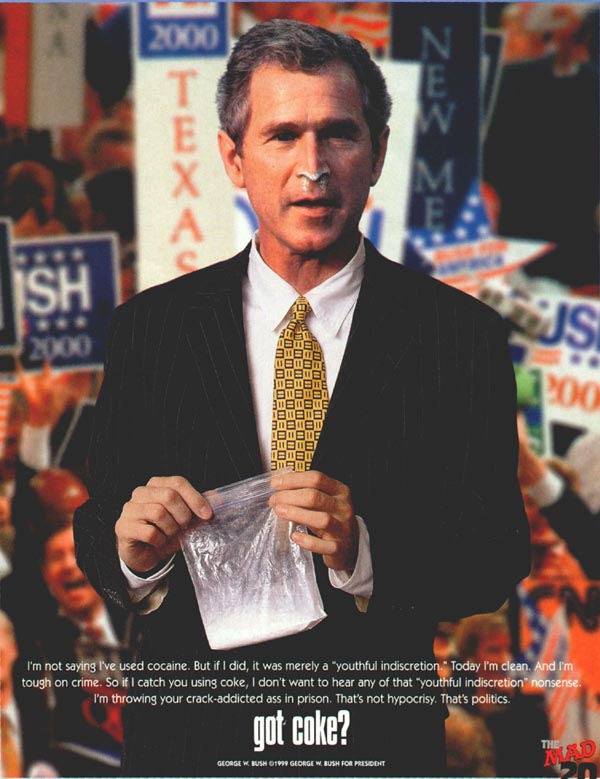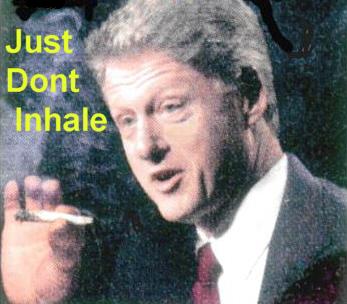Part 8: Mill on Drug Use and Marijuana Consistency
John Stuart Mill and Drug Use
As we have seen Mill and his harm principle play a central role in defending drug use. But as we have seen before, what Mill says and what the harm principle might lead us to conclude are sometimes different. What might Mill say about drug use? There are at least two cases that seem to apply; depending upon which case we apply we get a different reading of Mill on this issue.
- There is the case of selling oneself into slavery. We examined this case earlier so I will make little mention of it here. If we accept the analogy between the loss of liberty when one sells oneself into slavery and the loss of liberty when one takes drugs and becomes addicted, then Mill would conclude that drug use is wrong.
- The more likely case that Mill would apply to drug use is the case of the unsafe bridge. As we recall, if someone is walking towards an unsafe bridge such that a risk of death or injury could result by their crossing, then we are justified in temporarily stopping them in order to inform them of the risk. Therefore, in the case of drug use, the state, like the citizen, may justifiably stop people from using drugs in order to warn them of the danger. (This would be equivalent to drug education.) Once warned of the risks of drug use, the state, like the citizen in the bridge case, would not be justified in preventing someone from undertaking the risky behavior.
Thus, the case of the bridge applied to drug use suggests that Mill would favor drug education warning of the danger of drug use, but that Mill would oppose a prohibition on drug use. Of course, this might vary depending upon the drug. For instance, a non-addictive drug with minimal risk of harm would definitely be defended. However, if a drug were to addict a majority of those who try it and if the risk of harm was, for instance, nearly always lethal, then Mill would conclude that this drug is not acceptable. The reason being that Mill clearly says that once warned, liberty allows you to cross a dangerous bridge, but Mill indicates that liberty would not allow you to cross "the bridge of certain death," as that would eliminate your future liberty.
Thought Question: Restricting All Due to a Few?
If responsible people can act without harming others, but some people who are irresponsible will harm others, then are we justified in restricting the activity for everyone? Mill seems to say no. Do you agree? We have all been in situations where a liberty was revoked because "some few ruined it for everyone." Is this reasoning a justifiable restriction of liberty?
What about Marijuana? (Consistency revisited)
Of all the drugs that are currently prohibited, marijuana is the one most frequently advocated as an acceptable drug. Thus far we have focused on drugs in general, often shifting from drug to drug. Now, I will offer a consistency argument comparing marijuana and the two accepted drugs of alcohol and tobacco. The essential axiom of this argument is as follows:
If X is acceptable and Y is not, then it must be the case that Y is somehow worse than X.
This is a statement of consistency, which says if one thing is accepted and another isn't, that there is something that makes one worse than the other which justifies our allowing one and prohibiting the other. Now, plug in marijuana as Y and alcohol or tobacco as X. Our current policy is precisely this: alcohol and tobacco are acceptable and marijuana is not because it is in some way worse. This forces us to ask in what way is marijuana worse than alcohol and tobacco?
There are three relevant criteria that I can think of to test this difference. The three criteria are:
- the addictiveness
- the harm to others
- the harm to the user
Addiction. In terms of addiction, which drug is the most addictive? Clearly, tobacco is the most addictive drug. Alcohol is only addictive to certain users, and it is not clear that marijuana is addictive at all (it is, as they say, "habit forming" like chocolate). Therefore, in terms of addiction, it is tobacco that is worse than the other two and likely alcohol worse than marijuana. Thus, there are no grounds to claim marijuana is worse due to addiction.
Harm to others. In terms of harm to others which drug is the most harmful ? We might imagine three establishments on the same downtown street. The first is a drinking bar where people drink alcohol, the second is a smoking lounge where people buy and smoke tobacco, and the third is the marijuana brownie bar where people consume marijuana (to avoid the "secondhand smoke" issue). Imagine the same  number of people in each bar and even make them the same "class" of people. Now, ask yourself, which establishment is going to have the most fights and other problems? Then, ask yourself, which group of patrons will most likely get in a car accident on the drive home? Finally, ask yourself, which group of patrons is most likely to abuse their wife/husband/kids when they get home? It is quite clear that the tobacco user is the least likely in each case. It is also clear that the alcohol users are the most likely to cause harm in each case. The marijuana users are not likely to get in fights and abuse their families (angry violent potheads are not a common phenomenon). Of course, being high does impair driving, but not as much as alcohol (though your instructor recommends you not drive under the influence of either substance). Thus, in terms of the harm to others , it is alcohol that is worse than the other drugs.
number of people in each bar and even make them the same "class" of people. Now, ask yourself, which establishment is going to have the most fights and other problems? Then, ask yourself, which group of patrons will most likely get in a car accident on the drive home? Finally, ask yourself, which group of patrons is most likely to abuse their wife/husband/kids when they get home? It is quite clear that the tobacco user is the least likely in each case. It is also clear that the alcohol users are the most likely to cause harm in each case. The marijuana users are not likely to get in fights and abuse their families (angry violent potheads are not a common phenomenon). Of course, being high does impair driving, but not as much as alcohol (though your instructor recommends you not drive under the influence of either substance). Thus, in terms of the harm to others , it is alcohol that is worse than the other drugs.
Harm to the user. In terms of harm to the user, which drug is the most harmful? This is a difficult empirical question, but perhaps we can think of it this way:
- How many years of smoking tobacco regularly until you encounter life-threatening health problems? The answer is likely several decades.
- How many years of drinking regularly until you encounter life threatening health problems? Again, the answer is going to be decades (we don't see lots of 30 yr olds dying from their drinking and smoking habits in college).
- How many years of smoking marijuana regularly until you encounter life threatening health problems? This answer is not clear as people do not die from marijuana use (unlike those who overdose from drinking, people do not overdose on marijuana).
Certainly, there are effects . Many claim that marijuana use slows the brain function, ages people prematurely, can damage lungs when smoked, and it contributes to munchie consumption which may lead to weight gain. However, it is not clear that marijuana use will harm you more than alcohol and tobacco use. In fact, it may be more dangerous to you to eat a Big Mac for lunch each day than to use any of these substances (heart attacks occur years before lung cancer or sclerosis of the liver). In other words, it is not obvious that marijuana is more harmful on a user than alcohol or tobacco.
If these are accurate depictions, then we have a consistency problem. Given the harm to the user, harm to others, and risks of addiction, marijuana is not worse than the drugs we do allow. As a result, we have an inconsistent policy which says that X is accepted, Y is prohibited, but X is actually worse than Y! Now, what is the solution to this consistency problem (if it truly exists as presented)? The solution is either end the prohibition of marijuana or prohibit alcohol or tobacco. (Prohibiting either one will resolve the consistency problem, think about it and you should see why.) Keep in mind this is only a comparison of recreational uses and ignores the potential medicinal or industrial uses that marijuana may have which further its beneficial value compared to tobacco and alcohol.
Paternalism Revisited
Finally, we should revisit the question of paternalism as mentioned by Dworkin. If you recall, Dworkin made a compelling case that Mill (and other utilitarians) should allow paternalism in some instances. He required that they balance the harms prevented by state paternalism against the harms caused by limiting liberty. Dworkin did mention mountain climbing as a dangerous activity that should not be prevented because prevention caused more harm than it prevented. Suppose we accept Dworkin's argument and allow for paternalism in some cases (with the burden of proof upon the paternalist to justify state interference with liberty). What should we then conclude about drug use? Is paternalism enough to justify criminalization of any or all drugs?
Thought Question: Is recreational drug use a vice?
Certainly excessive use of any drug is a vice. However, what about the occasional recreational drug user? Imagine Jones comes home after a hard work day and kicks back with a couple of beers to relax. Jones gets a little buzz from drinking every now and then, but is not a heavy drinker. Next imagine that Smith comes home after a hard work day and kicks back with a joint to help him relax. Smith gets a little high from smoking pot every now and then, but is not a heavy user. Is Smith's recreational drug use a vice? If so, then wouldn't Jones recreational drug use be a vice too?

